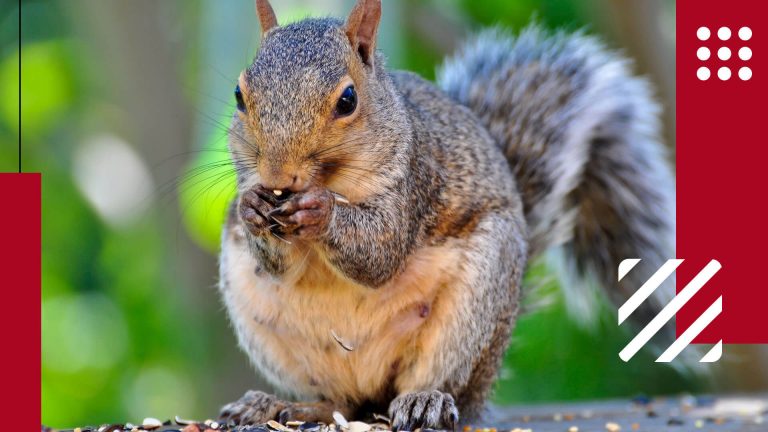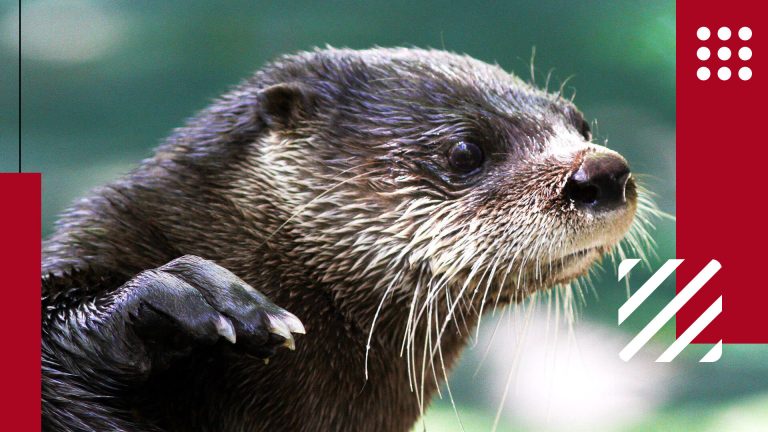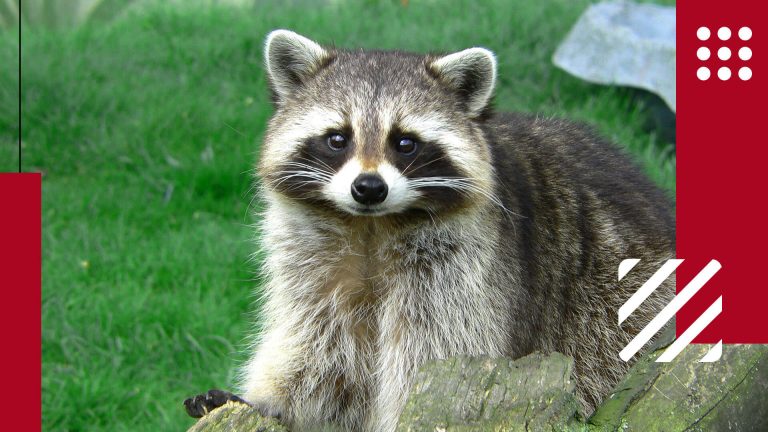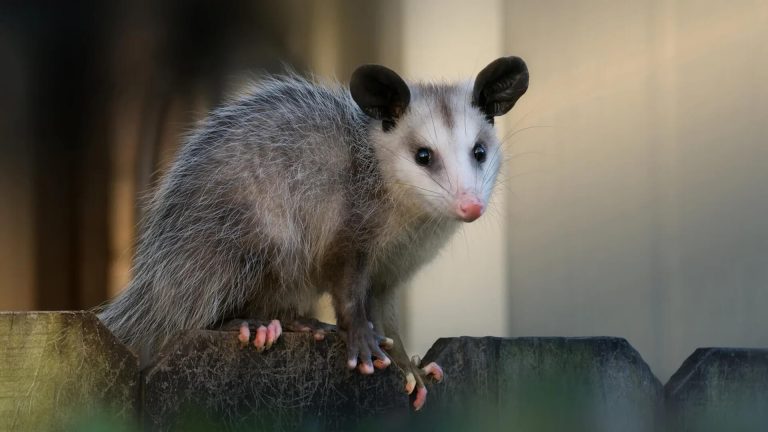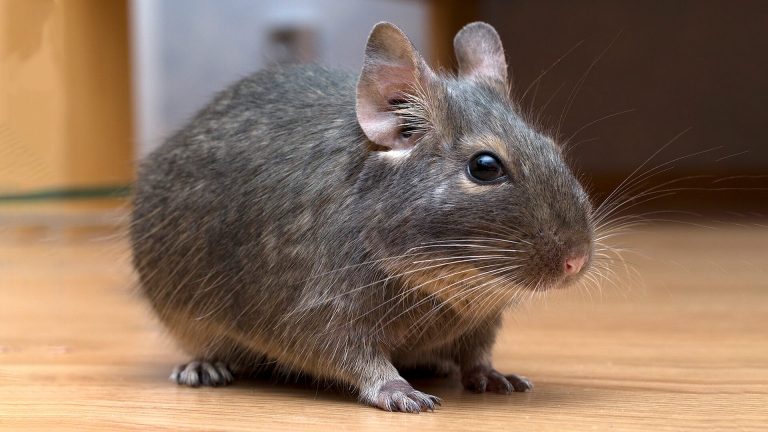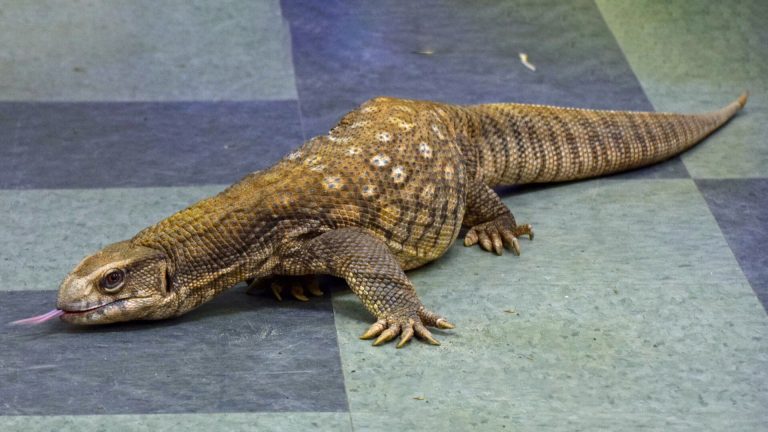The Skunk is a mammal known for its ability to secrete a strong, unpleasant-smelling substance from glands near its anus as a means of defense. Skunks are native to the Americas and belong to the family Mephitidae, which includes species such as the striped Skunk and the spotted Skunk. The word "skunk" comes from the Algonquin word "seganku," which means "one who squirts."
Distinctive Features of Skunk
| Species Name | Skunk (Mephitis spp.) |
| Lifespan | Up to 10 years |
| Size | Up to 30 inches |
| Weight | Up to 14 pounds |
| Coat | Dense fur with distinctive black and white markings |
| Color | Black with white stripes or spots |
| Health risk | Low |
| Unique trait | Ability to spray a strong-smelling liquid as a defense mechanism |
| Famous for | The strong odor they emit as a defense mechanism |
| Temperament | Curious, intelligent, and playful |
| Maintenance | Moderate (requires a proper enclosure and regular care) |
| Adaptability | Moderate (can adapt to different living environments with proper care) |
| Behavior | Not recommended as pets for young children due to their defensive spray and potential for aggression |
| Personality | Nocturnal, active, and can be mischievous |
| Social | Skunks can bond with their human caregivers and may enjoy social interaction |
Skunks are small to medium-sized mammals with distinctive black and white markings. They have a compact body, short legs, and a bushy tail. Skunks are known for their pair of anal glands, which are used to produce the strong-smelling secretion that they use for defense. Skunks can spray this secretion accurately over a distance of several meters.
In terms of size, Skunk can range from about the size of a chipmunk to the size of a house cat. The largest species of Skunk, the hog-nosed Skunk, can weigh up to 6 kg (13 lbs) and measure up to 76 cm (30 inches) in length, including the tail. The lifespan of Skunks in the wild is typically 3-5 years, although they can live for up to 10 years in captivity.
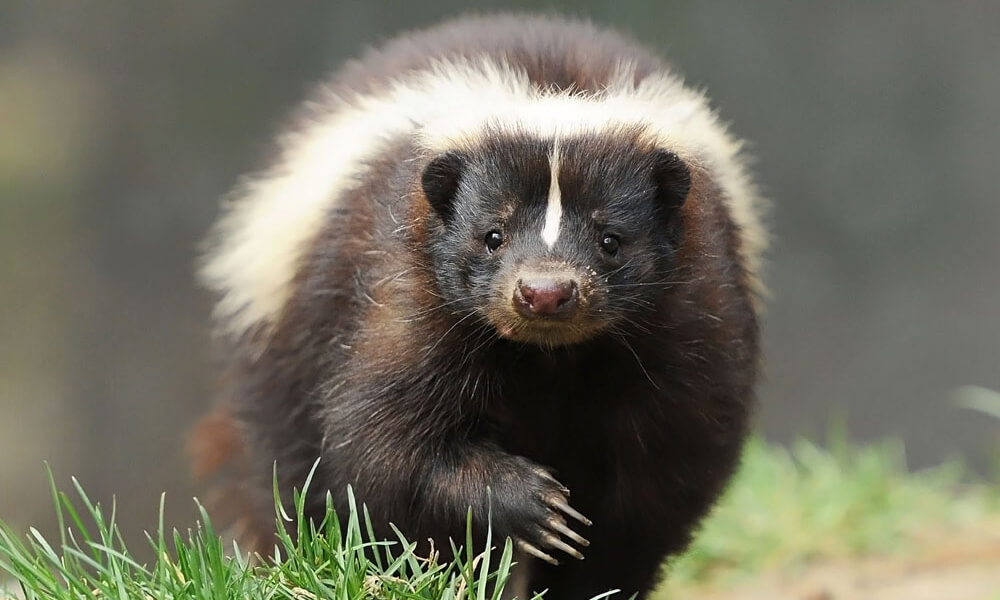
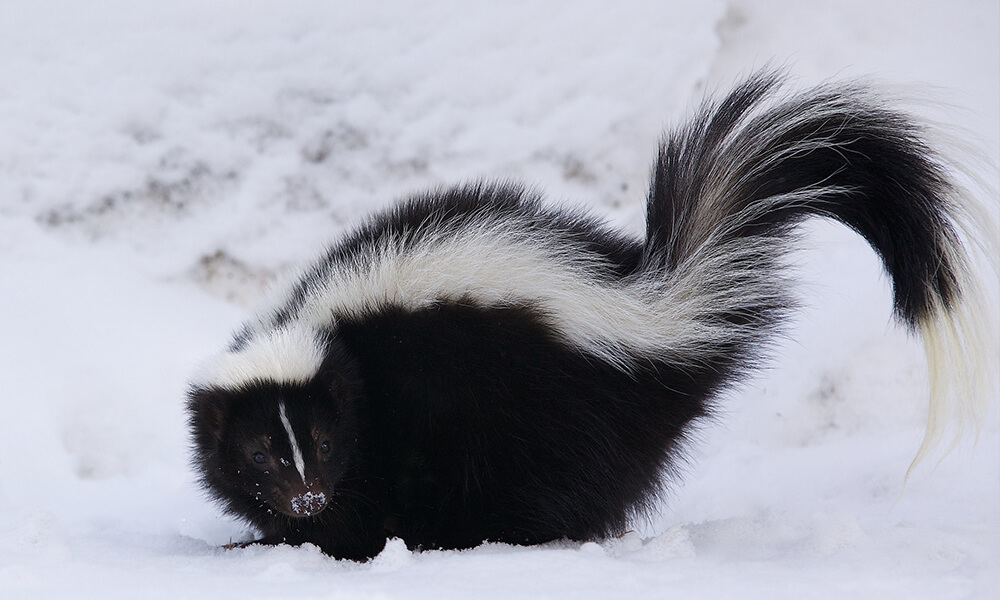
How to Take Care of Pet Skunk?
Taking care of a pet Skunk requires patience, understanding, and a commitment to meeting their unique needs. Here are some suggestions:
How to Set Up a Habitat for Pet Skunk?
Keep in mind that Skunks are wild animals and may not make suitable pets for everyone. In many places, it is illegal to keep Skunks as pets, and they can also be difficult to care for properly. If you are considering keeping a Skunk as a pet, research the laws in your area and to make sure you are prepared to provide the necessary care and attention.
Skunks need a secure enclosure that is large enough for them to move around comfortably and that provides plenty of ventilation. The enclosure should have a solid floor and should be lined with bedding material such as straw or wood shavings. Fresh water should be available at all times, and the enclosure should have a hide box or other sheltered area for the Skunk to retreat to.
In addition to the physical aspects of the habitat, consider the social and psychological needs of a skunk. Skunks are solitary animals by nature and do not typically do well when housed with other animals. They also require regular handling and socialization in order to remain tame and avoid becoming aggressive. This can be time-consuming and challenging, so carefully consider whether you are prepared to provide the necessary care and attention before getting a Skunk as a pet.
What to Feed Your Pet Skunk?
Skunks are omnivores, which means that they eat a variety of plant and animal matter. In the wild, Skunks feed on insects, grubs, small mammals, fruits, and vegetables. As pets, Skunks should be fed a balanced diet that includes a variety of high-quality commercial cat or ferret food, as well as fresh fruits and vegetables.
Some good options for fruits and vegetables to feed a pet Skunk include:
- Dark, leafy greens such as spinach, collard greens, and kale
- Cruciferous vegetables like broccoli and cauliflower
- Root vegetables such as carrots, sweet potatoes, and turnips
- Fruits like apples, bananas, and berries
In addition to fresh fruits and vegetables, Skunks may also enjoy a small amount of cooked meat or eggs as an occasional treat.
What to Avoid Feeding Your Pet Skunk?
There are some foods that should be avoided when feeding a pet Skunk. These include:
- Foods that are high in fat or sugar, such as junk food or sweets
- Foods that are toxic to Skunks, such as chocolate, caffeine, alcohol, or onions
- Foods that are difficult for Skunks to digest, such as raw beans or raw potatoes
- Foods that can cause choking or other health problems, such as bones, pits, or seeds
If you are unsure about what to feed your pet Skunk, it is best to consult with a veterinarian who is familiar with Skunk care.
Grooming & Hygiene Needs of Pet Skunk
Grooming and hygiene are important aspects of caring for a pet Skunk. Here are some grooming and hygiene needs to consider:
- Bathing: Skunks have a natural musk odor, but regular baths can help keep them clean and minimize their scent. Use a pet-safe shampoo specifically formulated for Skunks and ensure the water temperature is comfortable for them. Be gentle during bath time to avoid stressing the Skunk.
- Nail Trimming: Skunks' nails can grow long and sharp, so regular nail trims are necessary to prevent discomfort and potential injury. Use proper pet nail clippers and be cautious to avoid cutting the quick (the sensitive part of the nail). If you're unsure or uncomfortable with nail trimming, consult a veterinarian or a professional groomer.
- Dental Care: Dental health is essential for Skunks. Provide appropriate chew toys and dental treats to help keep their teeth clean and prevent dental issues. Regular veterinary check-ups can also include dental examinations to ensure their teeth and gums are in good condition.
- Ear Cleaning: Skunks can develop earwax and debris in their ears, so regular ear cleaning is important. Use a veterinarian-recommended ear cleaner and gently clean the outer part of the ear with a cotton ball or soft cloth. Be cautious not to insert anything into the ear canal.
- Coat Care: Skunks have thick fur that may require regular brushing to remove loose hair and prevent matting. Use a soft-bristled brush suitable for their fur type. Regular brushing can also help distribute natural oils and keep their coat healthy and shiny.
- Environment Cleaning: Skunks should be provided with a clean living environment. Regularly clean their bedding, litter box, and play areas to maintain a hygienic environment. Skunks are known for their litter box training abilities, so ensure the litter box is kept clean and odor-free.
Other Pets to Keep or Avoid with Skunk
Skunks are solitary animals by nature and do not typically do well when housed with other animals. They may become aggressive or stressed when housed with other animals, and this can lead to health problems or other problems. For this reason, it is generally not recommended to keep Skunks with other pets.
In case you still want to keep a Skunk as a pet, avoid housing them with other animals. Skunks should be kept as solitary pets in order to provide them with the best possible care and to prevent problems from arising.
Health Concerns of Pet Skunks
Skunks, like all animals, can be susceptible to various health problems. Some common health concerns for pet Skunks include:
- Obesity: Skunks are prone to obesity, which can lead to a variety of health problems. Overweight Skunks are at an increased risk of heart disease, respiratory problems, and other health issues. Monitor your Skunk's weight and to feed them a balanced diet to prevent obesity.
- Dental problems: Skunks can develop dental problems, such as tooth decay or periodontal disease. These problems can be caused by a diet that is high in sugar or fat, or by a lack of dental care. Regular brushing and dental checkups can help prevent dental problems in Skunks.
- Respiratory problems: Skunks can develop respiratory problems, such as pneumonia or bronchitis, due to poor ventilation or exposure to respiratory irritants. Provide your Skunk with a well-ventilated enclosure and to avoid exposing them to things that can irritate their respiratory system.
- Fatty liver disease: Fatty liver disease is a condition observed in Skunks where excessive fat accumulates in the liver, potentially leading to liver dysfunction and health complications.
- Parasites: Skunks can be infected with various parasites, such as fleas, ticks, or worms. These parasites can cause health problems and should be treated promptly. Regular checkups and preventive measures can help prevent parasite infections in Skunks.
- Intussusception: Intussusception is a potentially life-threatening condition where one segment of the Skunk's intestine telescopes into another, causing an obstruction. Immediate veterinary attention is required for diagnosis and treatment.
- Staph Infection: Staph infection in Skunks requires veterinary attention. Symptoms may include skin lesions, abscesses, and fever. Prompt treatment with antibiotics is essential to prevent complications and ensure the skunk's well-being.
- Anxiety Disorder: Skunk experiencing severe anxiety; erratic behavior, heightened alertness, excessive hiding, and defensive spraying. Consult a veterinarian for proper diagnosis and treatment options.
- Diabetes in Skunks: Diabetes can occur in Skunks, just like in other mammals. It is a chronic condition where the body struggles to regulate blood sugar levels, leading to potential health complications.
- Allergies: Skunks can cause allergies through their musk, which contains chemicals that may trigger allergic reactions in some individuals, leading to symptoms like sneezing, itching, watery eyes, and respiratory issues.
If you are concerned about your Skunk's health, it is best to consult with a veterinarian who is familiar with Skunk care. A veterinarian can help you identify and treat any health problems your Skunk may be experiencing.
What It's Like to Keep Skunk as a Pet?
Skunks kept as pets are typically domesticated species, such as the Striped Skunk (Mephitis mephitis). However, it's crucial to research and understand the legality of owning a pet Skunk in your area, as laws regarding Skunk ownership vary by jurisdiction. In some places, owning a pet Skunk may require permits or be outright prohibited. Here's some information about what it's like to have a Skunk as a pet:
Behavior and Temperament: Skunks are intelligent animals with unique behaviors. Pet Skunks that have been bred in captivity and properly socialized from a young age can develop a bond with their owners. However, note that Skunks still retain some of their wild instincts and may exhibit natural behaviors such as digging, scent marking, and foraging. They have a curious and playful nature and can form strong attachments with their human companions.
Socialization and Training: Skunks benefit from early socialization and positive reinforcement training. Regular interaction, playtime, and handling from a young age can help build trust and strengthen the bond between the Skunk and its owner. Skunks can learn basic commands and can be litter-trained. Be patient, consistent, and gentle in your training approach.
Scent Glands: Skunks have scent glands that produce a strong-smelling spray as a defense mechanism. Pet Skunks are typically descented at a young age by removing or reducing the scent glands, which significantly reduces the likelihood of them spraying. However, there is still a possibility of residual odor, and some Skunks may still exhibit scent-marking behaviors.
Facts About Skunks
- Skunks belong to the family Mephitidae, which includes species such as the striped Skunk and the spotted Skunk.
- Skunks are known for their ability to secrete a strong-smelling substance from glands near their anus as a means of defense.
- Skunks can spray this secretion accurately over a distance of several meters.
- Skunks are solitary animals by nature and do not typically do well when housed with other animals.
Frequently Asked Questions About Skunk
Here are some frequently asked questions about Skunks:
Do Skunks make good pets?
Skunks are wild animals and may not make suitable pets for everyone. In many places, it is illegal to keep Skunks as pets, and they can also be difficult to care for properly. If you are considering keeping a Skunk as a pet, it is important to research the laws in your area and to make sure you are prepared to provide the necessary care and attention.
How big do Skunks get?
Skunks can range in size from about the size of a chipmunk to the size of a house cat. The largest species of Skunk, the hog-nosed Skunk, can weigh up to 6 kg (13 lbs) and measure up to 76 cm (30 inches) in length, including the tail.
Can Skunks be house-trained?
Skunks can be trained to use a litter box, but they may not be as easy to house-train as other pets. Skunks are solitary animals by nature and may be less inclined to please their owners than other domesticated animals. It may take patience and consistency to successfully house-train a Skunk.

